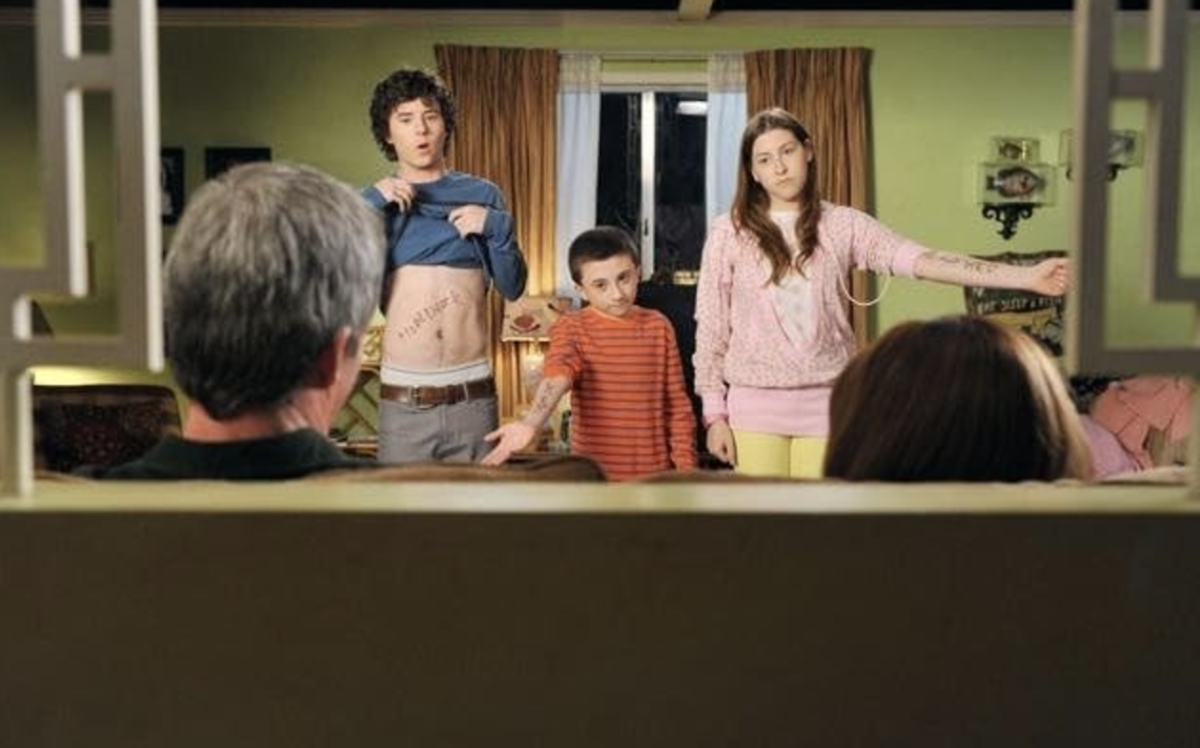A fading oceanographer with a vendetta against a shark, an overly ambitious prep school romantic and an antisocial cape-wearing fox. From “Bottle Rocket” to “Asteroid City,” Wes Anderson has become the patron saint of alternative cinematic masculinity. The men of his oeuvre are always bold, often narcissistic and prone to immaculate fashion sense.
Yet in Anderson’s nearly 30-year career, none of his characters have challenged traditional notions of masculine heroism quite so boldly as Monsieur Gustave H., the exacting and ever-dignified concierge of Anderson’s 2014 masterpiece, “The Grand Budapest Hotel.” With the film’s 10th anniversary this past March, we have yet to see another character so funny and quietly inspiring.
Gustave, played to perfection by Ralph Fiennes is a textbook dandy. He’s always dressed to the nines, he quotes poetry at the drop of a hat and he’d rather be caught dead than be without his favorite perfume, L’Air de Panache. He’s also a ladies’ man, tending to the elderly clientele of the Grand Budapest in any–yes, any–way he can. In all ways, he’s a model concierge.
The term “dandy” comes from an English insult, “jack-a-dandy,” meaning a conceited man who takes a bit too much pride in his appearance. In time it became almost entirely associated with male queerness (“homosexual acts” were illegal in the UK until 1967), but the term serves to ridicule any man who falls outside the traditionally modest model of masculinity. From Dorian Gray to Scar from “The Lion King,” fiction has long treated the dandy as sinister or the butt of the joke, too flamboyant and self-obsessed to be trusted, let alone become a hero.
Enters Wes Anderson, this story’s knight in a tailored corduroy suit. Gustave is given a hero’s introduction. The first time we see him is in silhouette, looking out over the hotel’s snowy surrounding mountains. It evokes the 1818 painting, “Wanderer above the Sea of Fog,” by German Romanticist Caspar David Friedrich, in which a man is standing before a vast complex domain, standing confidently at the peak of it all. The Grand Budapest is Gustave’s domain and he knows what it requires of him.
“The Grand Budapest Hotel” is told from the perspective of Zero, Gustave’s lobby boy protégé, who grows to see him as a brother. With Zero narrating decades after the action of the film, Gustave becomes a mythical figure. His quirks may seem mysterious, but the concierge never seems ashamed of any of them. His self-worth is obvious to him.
Following the death of Madame D., the secret owner of the hotel and Gustave’s former lover, he learns that he’s inherited the legendary painting, “Boy with Apple.” When Dmitri, the enraged son of Madame D., threatens Gustave, calling him a “goddamned little fruit,” the concierge seems to be at a loss for words, but only for a moment: “Well, how’s that supposed to make me feel?” It’s a hilarious moment, showing that Gustave can’t even waste the brainpower to rebut Dmitri’s implication. What good would it do to argue with someone who clearly isn’t interested in knowing who you are or what you do?
This approach doesn’t quite apply in prison, though. Following Gustave’s imprisonment for stealing “Boy with Apple,” Zero visits him only to find he has earned two black eyes. “What happened, my dear Zero, is I beat the living shit out of a sniveling little runt called Pinky Bandinski, who had the gall to question my virility,” Gustave says. “Because if there’s one thing we’ve learned from penny dreadfuls, it’s that when you find yourself in a place like this, you must never be a candy-ass.” Even in prison, surrounded by scarred, musclebound convicts, Gustave understands the social hierarchy entirely and is prepared to fight back to earn his place within it.
There’s a clear love for Gustave that defines “The Grand Budapest Hotel.” In a 2014 interview for Fresh Air on NPR, Anderson said that Gustave was based on an old friend of his and the film’s co-writer, Hugo Guinness. It certainly shines through. The love shown for Gustave is the one you have for a long-time friend; you’ve seen them at their best and their worst, yet you’re still amazed by their goodness.
Gustave’s traits seem to always contradict each other.. He’s essentially the patriarch of the Grand Budapest, but he eats alone in his servants’ quarters. He seems to be preying on old women for their money, but he’s genuinely attracted to them and wants to spend time with them. After the prison break, he goes into a fit of rage after Zero forgets to bring L’Air de Panache. With Zero’s response, Gustave has an apologetic outpouring of humility. Anderson never simplifies Gustave.
For a film that is primarily a comedy, Anderson achieves something remarkably moving with the character of Gustave. Here is someone who is vain, demanding, but furiously in love with the process and upkeep of humanity. He knows that every single person requires care, and he’s always ready to provide it. He takes Zero under his wing, even beyond the duties of the hotel, as he repeatedly fights for Zero’s safety in the face of a rising fascist regime. It even costs him his life.
Gustave H. may not be explicitly queer, but in a way he is an ideal queer icon. He is unwaveringly comfortable as he is, deviating from a predetermined norm and excelling there. His recitations of poetry are often played for laughs, but it’s clear that he finds poetry in everyday life, even as a servant to those who, by design, may never notice him.
As the aged Zero says at the end of the film, “To be frank, I think his world had vanished long before he ever entered. But I will say, he certainly sustained the illusion with a marvelous grace.”
Thomas Machacz can be reached at [email protected].




















